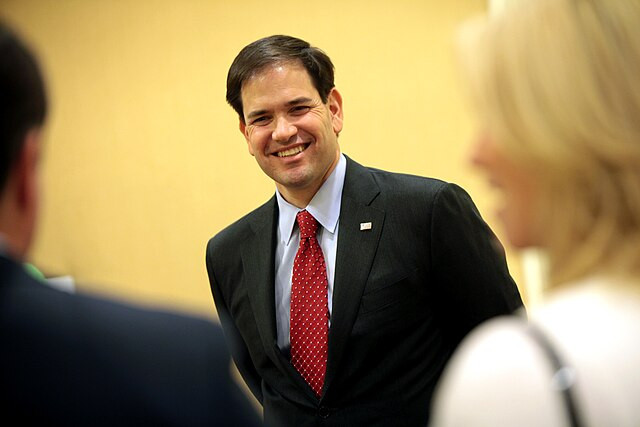Senior Trump administration officials are set to meet with Russian counterparts in Saudi Arabia as part of the White House's efforts to negotiate an end to the war in Ukraine, according to multiple U.S. government sources.
National Security Adviser Mike Waltz, Secretary of State Marco Rubio, and Middle East Envoy Steve Witkoff are expected to lead the U.S. delegation at the upcoming talks, two officials familiar with the matter said. The Russian side has reportedly assembled a high-level negotiating team, including political, intelligence, and economic figures. While the specific individuals representing Moscow have not been disclosed, Russian official Kirill Dmitriev, who played a key role in a recent U.S.-Russia prisoner exchange, is expected to be involved.
The meeting follows a phone call between President Donald Trump and Russian President Vladimir Putin earlier this week, during which the two leaders discussed the prospect of a settlement. Trump, who has emphasized his desire to end the nearly three-year conflict, indicated that negotiations would begin "immediately" and suggested that a future meeting between himself and Putin could take place in Saudi Arabia. "We think we're going to probably meet in Saudi Arabia, the first meeting," Trump said following his conversation with the Russian leader.
The State Department confirmed that Rubio spoke with Russian Foreign Minister Sergey Lavrov ahead of the scheduled meeting. "The Secretary reaffirmed President Trump's commitment to finding an end to the conflict in Ukraine," said State Department spokesperson Tammy Bruce. "In addition, they discussed the opportunity to potentially work together on a number of other bilateral issues."
Russian officials described the Lavrov-Rubio discussion as an agreement to maintain ongoing diplomatic contacts, including preparations for a potential high-level U.S.-Russia meeting.
The upcoming negotiations are expected to take place without direct European involvement. Trump's Russia-Ukraine envoy, retired Lt. Gen. Keith Kellogg, suggested that U.S. officials would engage with both Russia and Ukraine separately, following a "dual-track" approach. "You got a Russian track going on. At the same time, we've got a Ukrainian track going on," Kellogg said at the Munich Security Conference.
Kellogg indicated that Russia would be expected to make concessions, though he did not specify which ones. He noted that Moscow's alliances with Iran, North Korea, and China have created additional diplomatic pressure and that the U.S. could leverage Russia's economic reliance on oil and gas exports. "Seventy percent of the money they are getting to fund this war is coming from petro, oil, and gas," he said, adding that the U.S. must employ stronger sanctions to disrupt Russia's financial stability.
Vice President JD Vance met with Ukrainian President Volodymyr Zelenskyy in Munich on Friday, reaffirming Washington's position that peace must be "durable" and "lasting." Zelenskyy, in his address at the conference, emphasized Ukraine's need for "security guarantees" before considering negotiations with Russia. "We cannot agree to a ceasefire without real security guarantees," Zelenskyy said, dismissing the idea that Moscow alone could offer credible assurances.
Zelenskyy also expressed frustration with reports of a possible Trump-Putin summit, warning that excluding Ukraine from negotiations could be "very dangerous." He insisted that Ukraine would not accept any deal made "behind our backs without our involvement."
The Ukrainian leader also pushed for a stronger European defense initiative, urging the continent to build its own military capability in light of shifting U.S. policies. "Let's be honest - now we can't rule out the possibility that America might say 'No' to Europe on issues that threaten it," he said.
Trump has remained noncommittal on what Russia should concede to reach a settlement. "It's too early to say what's going to happen. Maybe Russia will give up a lot. Maybe they won't. It's all dependent on what is going to happen," he said Thursday.
The timing of a potential Trump-Putin meeting remains uncertain, but Saudi Arabia has publicly supported the ongoing diplomatic efforts. Crown Prince Mohammed bin Salman, who played a role in securing the release of detained American teacher Marc Fogel from Russia, is expected to be actively involved in the mediation process.
Meanwhile, Defense Secretary Pete Hegseth cast doubt on Ukraine's ability to restore its pre-2014 borders, stating that Russian opposition to Ukraine joining NATO has remained firm. "As far as NATO is concerned, from many years before President Putin, I will tell you that I've heard that Russia would never accept that," Trump said in response to whether Ukraine should be admitted into the alliance.






